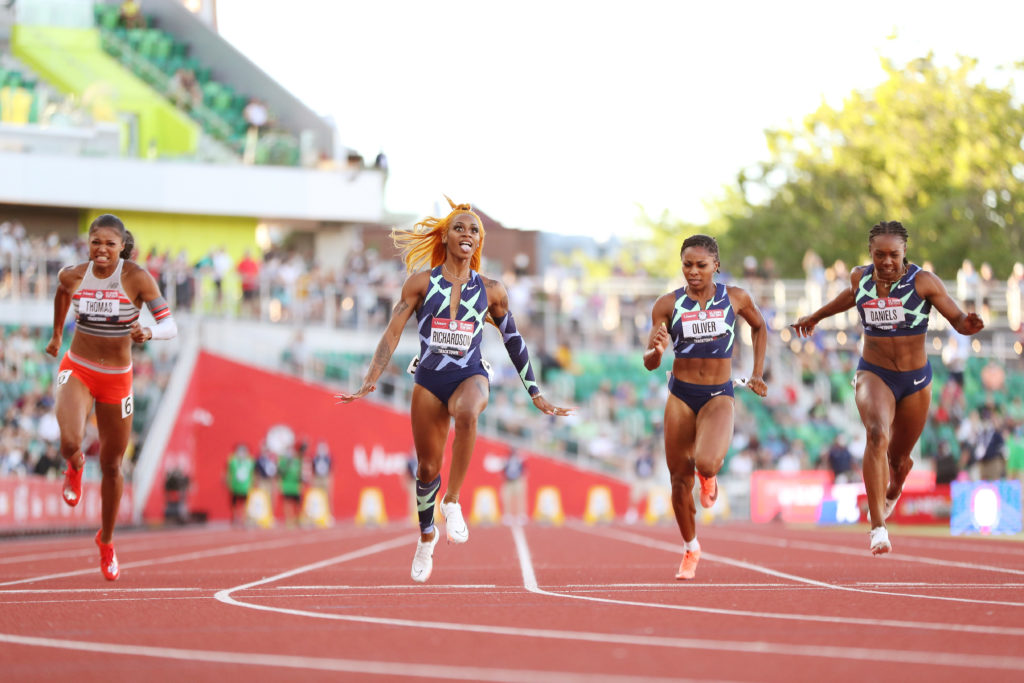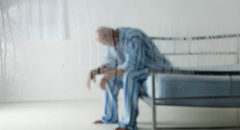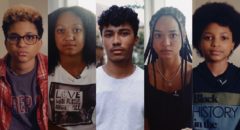
Questions of discrimination in the 2021 Tokyo Olympics have surfaced ever since the International Olympic Committee barred forms of protests such as Black Lives Matter clothing, kneeling, and raising a fist. As expected, this was met with strong scrutiny especially in the wake of everything that’s happened recently.
Last year, in the wake of George Floyd’s death, we saw more people than ever come together for protests during the pandemic and even saw the sports world change its stance on protesting and the Black Lives Matter movement. That includes the NFL, who blackballed Colin Kapernick for kneeling. So why isn’t the Olympics following suit?
Unfortunately, this is just one of the many headlines to come out about the Olympics that poses the question of whether or not Black people, particularly Black women are welcome at the Olympics.
Since then, the 2021 Olympics have become an increasingly difficult space for Black women. The most recent controversy is the suspension of Sha’Carri Richardson for failing a marijuana drug test.
As everyone knows, including Richardson, marijuana is not allowed according to the rules. Everyone also knows that marijuana is not a performance-enhancing drug. So this rule, which has blocked Richardson, the fastest woman since Flo Jo, from competing brings cause for a change to the rules.
Aside from that, the treatment and the public backlash of black women is far greater than women of any other race and that has taken a huge toll on their mental health.
For Richardson, she went from being praised for breaking records to being torn down as she mourns the death of her mother. The media, in particular, has attacked her image including everything from her hair to her nails. In fact, Australian journalist Claire Lehmann went as far as to suggest Richardson was using steroids because “strong nails and hair can be a side effect”. Lehmann even claimed this was the cause of death for Flo Jo, who died of an epileptic seizure with no drugs found in her system.
Rising tennis star, Naomi Osaka, has faced mental health challenges as well causing her to withdraw from the French Open to prioritize her mental health.
Serena Williams also opted to not participate in this years’ Olympics.
Furthermore, the battle against women being banned over high testosterone levels continues. In 2019, South African runner Caster Semenya lost her appeal against the rule that states she must take medication to lower her testosterone levels despite her intersex condition. Now Namibian sprinters, Christine Mboma and Beatrice Masilingi, have been ruled ineligible to compete in the women’s 400m at the Tokyo Olympics due to naturally high testosterone levels.
Last week, the International Swimming Federation (FINA) denied Soul Cap, a swimming cap designed to protect Afro-textured hair in the water from being used at this years’ Olympics.
Racial disparities in swimming date back to the 1920s and 1930s and the segregation of public pools. The USA Swimming Foundation says nearly 64% of African American children don’t learn how to swim, compared to 40% of White children.
Only two of the 26 women on the US Olympic swim team are Black, including Simone Manuel, who is the first African American female swimmer to win an individual gold medal.
After backlash and discussions of a lack of inclusivity in swimming, FINA is now revisiting the decision after originally stating that the cap doesn’t fit “the natural form of the head”.
All of these instances raise the question of why Black women have to face so many obstacles just to compete in the sport they are great at. It seems like every way they turn people are destined to find a way to stop them from achieving greatness.
Despite all that, Black women will continue to show why inclusivity matters all while being themselves and excelling at the 2021 Olympics with athletes like Simone Biles, who has managed to succeed despite being penalized for being too athletic, Simone Manuel, and three-time World Champion Allyson Felix, who is competing in her first Olympic games since becoming a mom.









